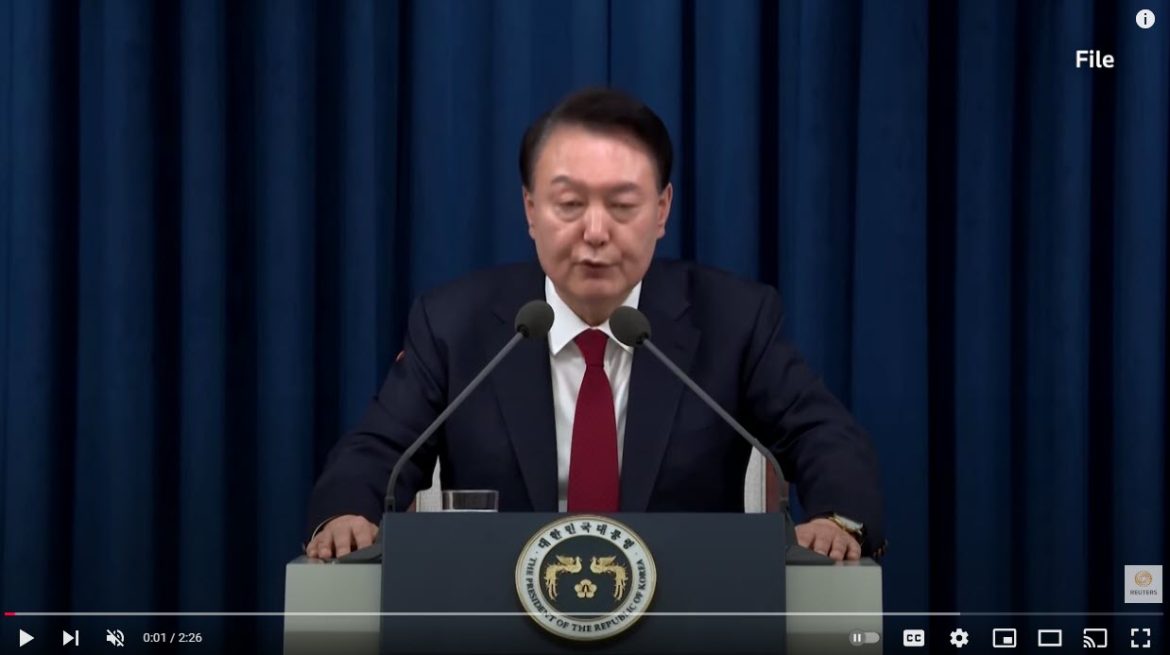In a historic and unprecedented decision, a South Korean court has approved the arrest of President Yoon Suk Yeol in connection with a controversial investigation into his brief imposition of martial law. The arrest warrant represents a watershed moment in South Korean politics, marking the first time an incumbent president has faced such legal action.
The decision comes amid allegations that President Yoon acted beyond his constitutional authority by invoking martial law in response to nationwide protests earlier in his tenure. Critics claim the measure was used to suppress political dissent and restrict civil liberties rather than address a genuine national emergency. The probe into the incident has intensified in recent months, with prosecutors alleging potential abuse of power, violations of democratic principles, and suppression of public freedoms.
The court’s ruling highlights the independence of South Korea’s judiciary in holding even the highest office in the land accountable. Legal experts describe the approval of the arrest warrant as a testament to the strength of the country’s democratic institutions, which have matured significantly since the days of military rule. The court has emphasized that the decision to issue the warrant is based on the need for a thorough investigation, particularly given concerns about evidence being tampered with or destroyed.
President Yoon, who was impeached earlier this year, has denied any wrongdoing and maintains that his decision to impose martial law was necessary to preserve national security and public order. In public statements, he has criticized the investigation as politically motivated and an attack on his presidency. His legal team has vowed to challenge the court’s decision, asserting that the charges lack merit and that the president’s actions were lawful under the circumstances.
The arrest of a sitting president has sparked intense public debate and political division across the country. Supporters of Yoon argue that his actions were justified to stabilize a volatile situation and prevent potential violence during large-scale protests. Opponents, however, view the imposition of martial law as a clear overreach and a dangerous precedent for democratic governance.
Protests have erupted in cities across South Korea, with citizens both supporting and opposing the court’s decision. Civil society groups and human rights organizations have welcomed the move, calling it a victory for accountability and transparency. They emphasize that no leader should be above the law, particularly in a country with a history of military-backed authoritarianism.
The decision also has significant implications for South Korea’s political landscape. Yoon’s impeachment and arrest have created a power vacuum in the executive branch, raising questions about the country’s leadership stability. The National Assembly is now tasked with navigating this unprecedented crisis while ensuring the continuity of government operations.
Internationally, the arrest has drawn widespread attention, with foreign governments closely monitoring the developments. South Korea, often hailed as a model of democratic progress in Asia, now finds itself at the center of a high-stakes legal and political drama. Analysts predict that the case will have long-lasting repercussions for the country’s political culture, governance, and public trust in its leaders.
As the investigation proceeds, the focus remains on uncovering the full truth behind the events that led to the imposition of martial law. The case is likely to be a defining moment in South Korea’s democratic evolution, reinforcing the principle that even the highest office in the land is not immune to accountability.



